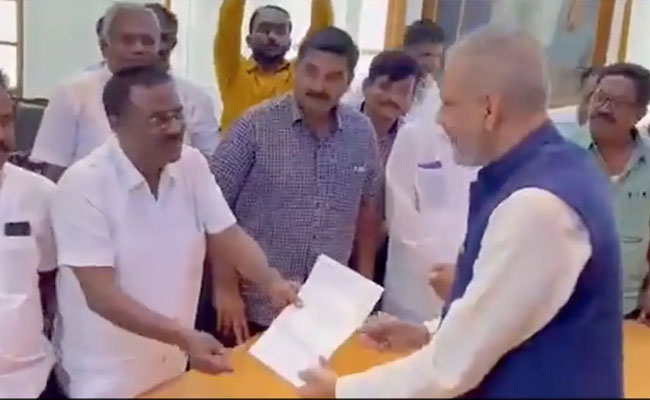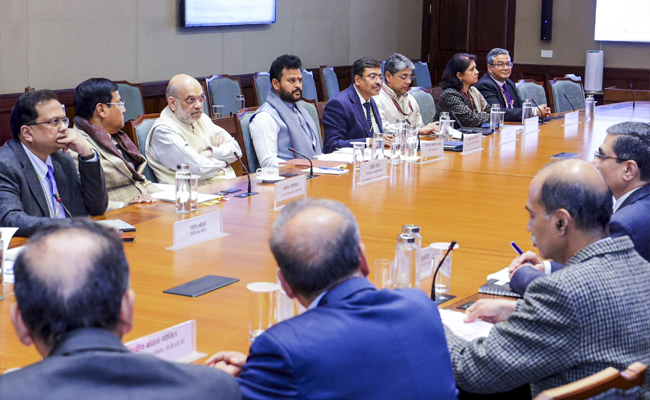Bengaluru (PTI): JD(S) MLA S R Srinivas (Gubbi Srinivas) on Monday submitted his resignation as a legislator to the Karnataka Assembly Speaker, ahead of the polls in the state, and said he will be soon joining the Congress.
Mr Srinivas was accused of cross-voting in the June 2022 Rajya Sabha polls, which according to the JD(S), contributed to the defeat of its candidate D Kupendra Reddy.
Last year, the JD(S) had expelled Mr Srinivas, and had even moved a petition to have him, along with another MLA K Srinivas Gowda from Kolar, disqualified under the anti-defection law. "After my resignation is accepted (by the Speaker) I will discuss with Congress leaders about joining the Congress officially...I'm planning to join Congress officially on March 31, after discussing with taluk leaders, I will decide," Mr Srinivas said.
Stating that he was resigning as JD(S) legislator with a lot of pain, he claimed that he was forced to take such a step by the party leadership, who expelled him on the basis of "false allegations." "I had worked under the leadership of (H D) Deve Gowda and (H D) Kumaraswamy in JD(S) for about 20 years, today I'm resigning as that party MLA with a heavy heart and a lot of pain. Deve Gowda had treated me like a son and encouraged me to work, I thank him wholeheartedly. Kumaraswamy too used to treat me like his own younger brother, but not sure as to what made him oust me from the party," Mr Srinivas said.
Speaking to reporters, he said he has submitted his resignation as JD(S) MLA to Speaker of Karnataka Legislative Assembly Vishweshwar Hegde Kageri. "Speaker has said he will examine it." "I'm in a lot of pain today leaving JD(S), I have no options. In October, 2021 Kumaraswamy announced a JD(S) candidate from my seat even as I was still in the party, from that day the distance between us widened. He had also made certain false allegations against me, like holding me responsible for Deve Gowda's defeat in 2019 Lok Sabha polls from Tumakuru. I had never done such anti-party activity and had honestly served the party," he added.
Also noting that he was unnecessarily expelled from the party by making certain "confusing false allegations", by accusing him of cross voting during Rajya Sabha polls, Mr Srinivas said, "I don't know who said what against me to Kumaraswamy, he acted against me and expelled me."
Let the Truth be known. If you read VB and like VB, please be a VB Supporter and Help us deliver the Truth to one and all.
Palakkad (Kerala) (PTI): Five people have been arrested for allegedly beating to death a Jharkhand native on suspicion of theft near Walayar here a day ago, police said on Friday.
The arrests were formally recorded late Thursday night and all the accused have been booked for the offence of murder under the Bharatiya Nyaya Sanhita, an officer of Walayar police station said.
The deceased -- Ramnarayan Bhayar (31) -- was working as a labourer in the Walayar area.
According to police, Bhayar was attacked by a group of men on Wednesday evening, alleging that he was involved in a theft at Kizhakeattappallam near Walayar.
As per the FIR, the incident occurred before 7.40 pm, and the injured Bhayar was rushed to the Palakkad District Government Hospital, where he later succumbed to his injuries.
Police said a detailed investigation was underway to ascertain the sequence of events leading to the incident.





